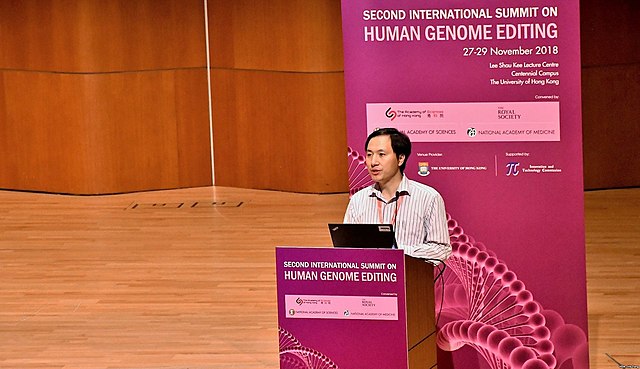As creator of ‘CRISPR babies’ nears release from prison, where does embryo editing stand?
By Jon Cohen,
Science
| 03. 21. 2022
Biophysicist He Jiankui, having served a 3-year sentence for creating the world’s first genetically engineered babies, may be released from a Chinese prison this week, Science has learned. He’s largely secret use of the genome editor CRISPR to alter the DNA of human embryos and implant them into two women led to three births, sparking ethical outrage and fears for the babies’ health (about which little is known). It did not, however, bring an end to basic research on human embryo editing.
The response to He’s November 2018 announcement was “severe and vibrant,” says Fyodor Urnov, who studies CRISPR-based genome editing at the University of California, Berkeley. For now, Urnov sees no circumstance that would justify efforts to genetically modify babies. But he strongly supports using CRISPR to fix disease-causing mutations after birth, without causing heritable changes to a human genome, and regrets that “we have poured a jar of tar on gene editing.” And Urnov and others believe that, used responsibly and safely, embryo editing could eventually prove a powerful tool against disease in rare circumstances. In laboratory studies...
Related Articles
By Scott Solomon, The MIT Press Reader | 02.12.2026
Chris Mason is a man in a hurry.
“Sometimes walking from the subway to the lab takes too long, so I’ll start running,” he told me over breakfast at a bistro near his home in Brooklyn on a crisp...
By Diaa Hadid and Shweta Desai, NPR | 01.29.2026
MUMBRA, India — The afternoon sun shines on the woman in a commuter-town café, highlighting her almond-shaped eyes and pale skin, a look often sought after by couples who need an egg to have a baby.
"I have good eggs,"...
By George Janes, BioNews | 01.12.2026
A heart attack patient has become the first person to be treated in a clinical trial of an experimental gene therapy, which aims to strengthen blood vessels after coronary bypass surgery.
Coronary artery bypass surgery is performed to treat...
By Staff, ScienceDaily | 01.05.2026
Scientists at UNSW Sydney have developed a new form of CRISPR technology that could make gene therapy safer while also resolving a decades-long debate about how genes are switched off. The research shows that small chemical markers attached to DNA
...




